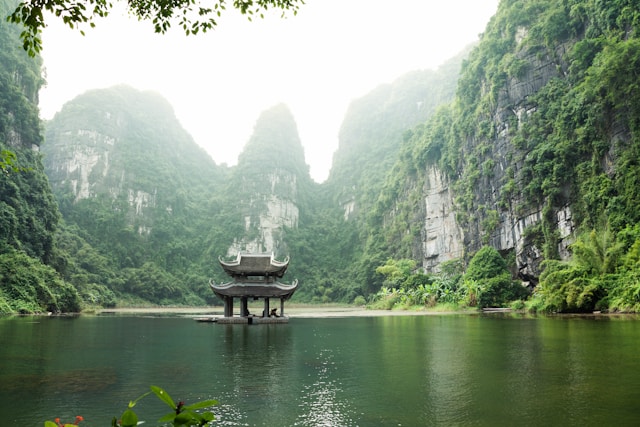Vietnam, a Southeast Asian gem, beckons with its beautiful cities, stunning landscapes, and rich culture. But choosing the ideal time to visit can make all the difference. Here’s a breakdown from travel experts on the best (and worst) times to explore this captivating country.
Sun Seekers Paradise: November to April
Pros
This dry season boasts pleasant temperatures, perfect for beach getaways in Nha Trang, Phu Quoc, or Da Nang. Sunshine dominates, ideal for sightseeing in Hanoi, Hoi An, and Ho Chi Minh City.
Cons
Peak season means higher prices and larger crowds at popular destinations. Consider booking flights and accommodation in advance.
Shoulder Season Shoulder Shuffle: May, June, September, and October
Pros
Enjoy a sweet spot between seasons. You might encounter some rain showers, but overall, the weather is generally pleasant. Hotel rates dip slightly, and tourist crowds are thinner compared to peak season.
Cons
Be prepared for unpredictable weather patterns – pack for both sunshine and rain. Some attractions might have limited hours during the shoulder seasons.
Monsoon Season: July and August
Tràng An, Ninh Bình, Vietnam – Photo by Rowan Heuvel on Unsplash
Pros
If you’re on a tight budget, this is the time to find the best deals on flights and hotels. There are many apartments in Saigon such as the Oakwood Residence Saigon that are perfect stays during this period. Fewer crowds offer a more intimate travel experience. Lush landscapes come alive with the exotic green of the rainy season.
Cons
Be prepared for frequent downpours that can disrupt travel plans. Some outdoor activities might be unavailable. Humidity levels can be quite high.
Final Tip
No matter the season, Vietnam offers a unique and unforgettable experience. Do your research based on the specific regions you plan to visit and pack accordingly!
